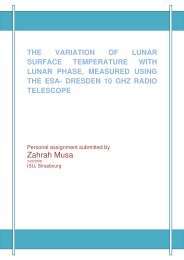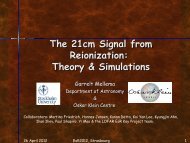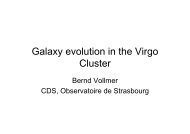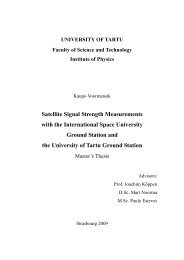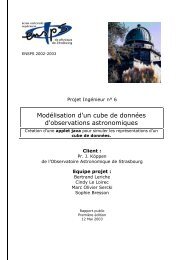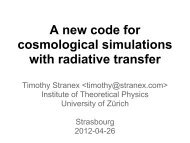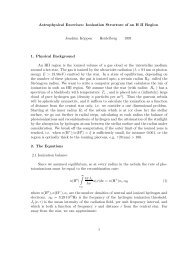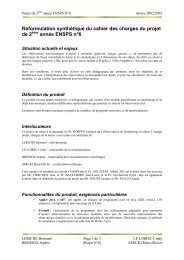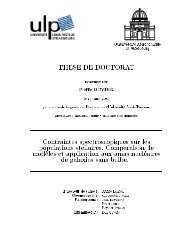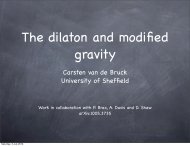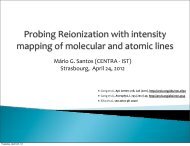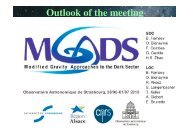View - Observatoire Astronomique de Strasbourg
View - Observatoire Astronomique de Strasbourg
View - Observatoire Astronomique de Strasbourg
You also want an ePaper? Increase the reach of your titles
YUMPU automatically turns print PDFs into web optimized ePapers that Google loves.
Working provisional copy - Pls do not circulate<br />
ASTRONOMICAL PUBLISHING 21<br />
universities to push hard for open access for the reasons noted earlier. And<br />
open access has great educational benefits as well as benefits for basic research.<br />
(A disclaimer: I work for Harvard University which now has a strong<br />
internal open access policy aimed at providing free use for non-profit purposes<br />
– education and research – to content produced by university staff<br />
and faculty). And the government has entered the <strong>de</strong>bate by asking for comments<br />
on proposed regulations regarding access to content produced with<br />
Fe<strong>de</strong>ral resources. Most people tend to forget that US Fe<strong>de</strong>ral Employee<br />
and certain state employees are already “exempt” from copyright, i.e. their<br />
work cannot be copyrighted so by <strong>de</strong>finition is freely available. This has not,<br />
as I can again tell you from personal experience as a Smithsonian employee<br />
and civil servant, hin<strong>de</strong>red the ability of Feds to publish.<br />
Congress, the Executive Branch and the Judiciary have been of two<br />
minds on this issue. On one hand they want to protect intellectual property<br />
rights (patents, copyrights) to provi<strong>de</strong> proprietary use of material for gain<br />
and competitive advantage – its good for industry and individuals. On the<br />
other hand, they believe that there should be free access to information paid<br />
for by the taxpayer – which will also lead to economic gain and competitive<br />
advantage. It is quite possible in any compromise that we could get the<br />
worst of both worlds. Fortunately the problem is now un<strong>de</strong>r study and<br />
most (but not all) of the parties involved have gotten together to examine<br />
solutions to the open access question that will provi<strong>de</strong> such access without<br />
<strong>de</strong>stroying the economic basis for refereed scholarly publishing (see the<br />
report of the AAU Roundtable on Scholarly Publishing for a review of the<br />
problem and a list of recommendations, AAU 2010).<br />
5. The Future (The Tomorrowland of Publishing)<br />
So where do we go from here? And better, how can we prepare for the<br />
future? There are only a few drivers: New ways of Communicating, Changes<br />
in the Way We Work, Changes in the World, and lastly Changes in the<br />
Resources Available. Perhaps there will also be legal or legislative issues,<br />
but I cannot predict even in the short term what those might be. The others<br />
we un<strong>de</strong>rstand and can plan to address them.<br />
First we should remember 1. Why are we publishing? And 2. Who are<br />
the users? If we keep the answers to those questions in mind, we can have<br />
a much clearer view of what we need to do.<br />
Next, we can predict, based on recent past performance, important<br />
trends.<br />
1. There will be an increasing move towards open access and very rapid<br />
publication. “Tenure” based on only refereed publications is becoming<br />
less important, especially as more astronomers are employed outsi<strong>de</strong>



